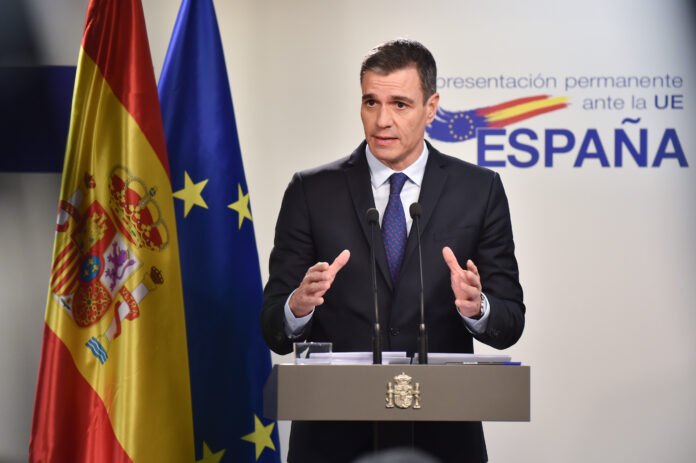Together looks ahead to the Spanish presidency of the EU
Ahead of recent local elections in May, Spanish Prime Minister Pedro Sánchez pulled out all the stops: discounted train fares for the young, discounted cinema tickets for the old and Cava for everyone! Well not quite, but shiny nice thing, after shiny nice thing was waved in front of the Spanish voter – but to little effect.
The outcome for PSOE (the Spanish social democratic party) was poor and the PP (Partido Popular, centre-right) have reaped the benefits – though, in some instances, this has meant joining forces with VOX, a populist party, intent on stirring up a very Spanish version of the culture war. VOX supporters are, at best, ambivalent on the matter of domestic violence, go blue when they see a LGBT flag hanging from a municipal building and feel that bullfighting and the very soul of Spain is under attack, from within and from migration.
Sánchez gambles
So, what to do? Well Sánchez’s response was to read the runes and call for a general election. The date has been set for 23 July. You got it, right at the beginning of the Spanish presidency of the EU.
Sánchez cobbled together a coalition with Podemos (The Left, in the European Parliament) to form a government. To make matters more complicated, this coalition was dependent on the abstention of pro-independence Catalan parties. It was, to put it mildly, complicated. Sánchez’s gamble could pay off. Macron campaigned while the French held the presidency, it might help his case if he was seen to be leading Europe in the run up to the election. Some in the European Parliament, mostly from the right, saw this as a sinister ploy and have postponed a planned visit of group leaders to Madrid planned for 26 June. Sánchez has chosen not to address the European Parliament at its July plenary, as is customary at the beginning of a presidency. Nevertheless, he recently presented the four main priorities for Spain’s EU leadership over the next six months.
“In the face of geopolitical changes, Spain is calling for a retrenchment and on-shoring of strategic sectors”
Firstly, Spain acknowledges the benefits an open economy has brought Europe and the world over the last decades, but in the face of geopolitical changes, is calling for a retrenchment and on-shoring of strategic sectors. Spain also wants greater diversification in the EU’s trade, in particular, to build on EU-Latin American links, something Spain is well placed to benefit from.
Secondly, the presidency will continue to accelerate the large body of environmental legislation already in the works related to the ‘Fit for 55’ package. Their priority will be the gas and hydrogen part of that package, as well as the measures to create a more sustainable product cycle. They argue that this has the additional benefit of bringing jobs as well as supporting the green transition.
“The presidency will continue to accelerate the large body of environmental legislation already in the works”
Thirdly, the Spanish presidency will advocate for fairer growth, saying that they will fight tax evasion from multinational corporations, which they say amounts to as much as 1.5% of GDP each year. They also want to make the case for more flexible fiscal rules that allow for adequate financing of the green and digital transitions.
Finally, under the broad heading of ‘Strengthening European unity’ the presidency will advocate for a deepening of the internal market, the completion of the banking union and the capital markets union, the consolidation and improvement of common funds, a more efficient and coordinated management of migration and asylum processes, and a coordinated support for Ukraine and other neighbouring states. In short, this heading is a catch all for everything and anything.
As ever, the machinery for managing all these moving pieces is well oiled by the officials of the various institutions. Should an election not go in Sánchez’ favour business will likely continue, but it would be disruptive if Spain were to become bogged down with difficult wranglings over who should form a new government. The best result for the EU would be a clear victory for one of the main parties, but it is anticipated that both will require coalition partners to form a government. As the rest of us wind down for our holiday, we can only hope that all will be resolved by September.










